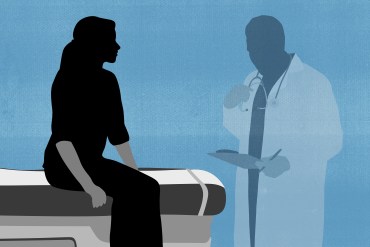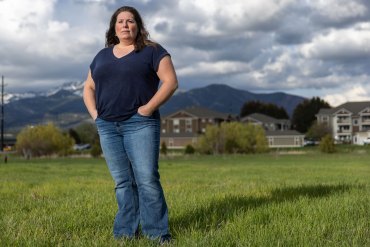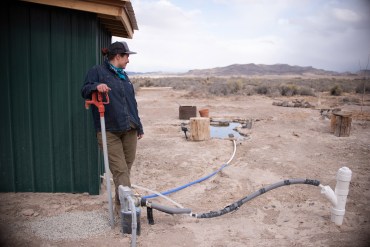As Low-Nicotine Cigarettes Hit the Market, Anti-Smoking Groups Press for Wider Standard
The first FDA-authorized cigarettes with 95% less nicotine than traditional smokes will go on sale in California, Florida, and Texas starting in early July. Anti-smoking groups oppose greenlighting just one plant biotech’s products and instead urge federal regulators to set a low-nicotine standard for the entire industry.
Misinformation Obscures Standards Guiding Gender-Affirming Care for Trans Youth
Many state legislatures have passed or are considering restrictions on gender-affirming care for trans minors. Yet much of the discussion is based on misconceptions about what that care entails.
Will the Doctor See You Now? The Health System’s Changing Landscape
The “front door” to the health system is changing, under pressure from increased demand, consolidation, and changing patient expectations.
Black, Rural Southern Women at Gravest Risk From Pregnancy Miss Out on Maternal Health Aid
A federal program meant to reduce maternal and infant mortality in rural areas isn’t reaching Black women who are most likely to die from pregnancy-related causes.
Drugmakers Are Abandoning Cheap Generics, and Now US Cancer Patients Can’t Get Meds
A quality-control crisis at an Indian pharmaceutical factory has left doctors and their patients with impossible choices as cheap, effective, generic cancer drugs go out of stock.
Medical Exiles: Families Flee States Amid Crackdown on Transgender Care
As more states restrict gender-affirming care for transgender people, some are relocating to more welcoming destinations, such as California, Illinois, Maryland, and Nevada, where they don’t have to worry about being locked out of medical care.
Opioid Settlement Payouts to Localities Made Public for First Time
KFF Health News obtained documents showing the exact dollar amounts — down to the cent — that local governments have been allocated in 2022 and 2023 to battle the ongoing opioid crisis.
International Rights Group Calls Out US for Allowing Hospitals to Push Millions Into Debt
In a new report, Human Rights Watch urges stronger federal and state action to hold hospitals to account for a medical debt crisis that now burdens more than 100 million Americans.
Montana Clinics Chip Away at Refugees’ Obstacles to Dental Care
As the number of refugees entering the U.S. grows, those arriving in Montana and other rural areas find limited dental care options.
At Least 1.7M Americans Use Health Sharing Arrangements, Despite Lack of Protections
A new report boosts the estimated number of people enrolled in plans whose members — usually brought together by shared religious beliefs — pay one another’s health costs.
Foster Kids in Casino Hotels? It Happened in Rural Nevada Amid Widespread Foster Home Shortages
A nationwide decline in foster home spots has led to dire situations in some rural areas, including northeastern Nevada, where a state social worker has been pleading with community leaders to help address a shortage that left officials housing children in casino hotels.
Biden Admin Implores States to Slow Medicaid Cuts After More Than 1M Enrollees Dropped
Secretary of Health and Human Services Xavier Becerra is asking states to make more of an effort to keep eligible Medicaid recipients enrolled. He particularly fears children losing health insurance coverage.
Chronic Lifeguard Shortage Serves as Springboard to Address Racial Inequities
Cities and towns are again in deep waters this summer trying to hire enough lifeguards to open their public pools. Many are proceeding with sensitivity to issues of race and ethnicity.
Massage Therapists Ease the Pain of Hospice Patients — But Aren’t Easy to Find
The pandemic disrupted the massage industry. Now those who specialize in hospice massage therapy are in demand and redefining their roles.
As Medicaid Purge Begins, ‘Staggering Numbers’ of Americans Lose Coverage
In what’s known as the Medicaid “unwinding,” states are combing through rolls to decide who stays and who goes. But the overwhelming majority of people who have lost coverage so far were dropped because of technicalities, not because officials determined they are no longer eligible.
More States OK Postpartum Medicaid Coverage Beyond Two Months
Montana, Alaska, Mississippi, Missouri, South Dakota, Texas, Utah, and Wyoming are among the latest states moving to provide health coverage for up to a year after pregnancy through the federal-state health insurance program for low-income people.
A Catch-22 for Clinics: State Bans Limit Abortion Counseling. Federal Title X Rules Require It.
Family planning clinics are getting caught between state abortion bans and a federal requirement to refer patients for abortion care on request.
This Panel Will Decide Whose Medicine to Make Affordable. Its Choice Will Be Tricky.
Colorado’s new Prescription Drug Affordability Board could cap what health plans and consumers pay for certain medications starting next year. The process will pit patient groups against one another.
Domestic Violence Shelters Move Out of Hiding
A new domestic violence shelter in Bozeman, Montana, reflects efforts nationwide to rethink the model that keeps survivors of abuse in hiding. But there are no guidelines for bringing shelters out into the open, leaving each to make it up as they go.
As Water Levels Drop, the Risk of Arsenic Rises
As the West grapples with a megadrought, its driest spell in at least 1,200 years, rising levels of arsenic — a known carcinogen — in Colorado’s San Luis Valley offer clues to what the future may hold.



























